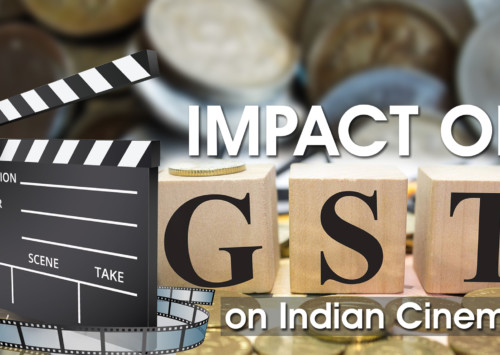Tamil Nadu movie halls open post GST strife
“Lack of clarity,” said the Tamil Nadu theatre owners as they kept movie halls shut post GST blaming double taxation crippling the regional cinema industry.
While the Goods and Services Tax (GST) was introduced to cut down issues of double taxation, the film industry in Tamil Nadu has their own share of problems in terms of ticket pricing and the state levied entertainment taxes. Most of the movie theatres in Tamil Nadu including the major cities of Chennai, Coimbatore, and Puducherry remained closed for the first ten days of July, only to open recently with negotiations taking the shape in the government headquarters.
After the initial roar in the country where GST rates on film tickets were announced at par with the likes of betting, racing, and casinos, the finance ministry brought a change in the denominations. It was decided that 18 pc GST will be levied on the film tickets that are lower than INR 100 and 28 pc on the tickets higher than INR 100.
The consumer body of Coimbatore Consumer Cause (CCC) has previously asked for clarifications regarding the state entertainment tax on cinema tickets on top of the additional GST at 18 pc and 28 pc.
The confusion over the final price of tickets remained unresolved until June 30, Friday night, and multiplexes in the city withheld advance online and offline bookings for shows on Saturday. However, Sathyam Cinemas enabled online booking on Friday night, pricing tickets between INR 95 and INR 118. Tamil Nadu Theatre Owners and Distributors Association cancelled all movie screenings in the state as negotiation on the final price was still vague and there were concerns on how much of this amount will reach the producers.
C Kalyan, the President of the Film Federation of India and also the Chairman of the South Indian Film Chamber of Commerce was approached for a quick description of the situation in Tamil Nadu. “We have opened the screening of films temporarily; however, the arbitration with the state government is still on,” Kalyan said MIG in a telephonic conversation. “It is only Tamil Nadu among all the states in India that are facing this unnecessary situation,” he added.
Double Taxation
In Tamil Nadu, most of the ticket prices start at the base rate of 83 and accommodate 30 pc entertainment tax and 1 pc admission fee to round the price to 120. Post GST, the theatre owners allegedly are unclear about whether the 28 pc GST announced for tickets at multiplexes will affect their profit margins or add to the existing price. The clarifications from the state government are yet to come on how much tax amount will be levied on theatre owners and whether the state taxes will still be valid. Reportedly, the same INR 120 tickets will now go up to INR 153.
Thus, the issue of double taxation still remains unresolved as the reports reveal that the State Government has stopped collecting the entertainment tax for movies with Tamil titles, but the cinemas continued to charge it as there was not prior intimidation. The exemption of the entertainment tax was imposed in 2006 and thus far, the amount collected by the theatres till now is assumed to be in billions.
Siddharth Roy Kapur, the President of the Film and Television Producers Guild of India highlighted the issue of double taxation in a statement earlier in June, issued by the Producers Guild after the revision of the GST rates were announced. He said, “The Indian film industry appreciates the move by the Finance Minister and the GST Council to consider the legitimate concerns of the industry, by revising the GST slab from 28 pc to 18 pc on cinema tickets priced below INR 100. We continue to believe that the Indian film sector deserves to be taxed at a much lower rate than this, to encourage further investment, employment, and growth, which in turn will only lead to higher tax revenues for the government and a more vibrant cultural outreach from India to the rest of the world. We would also urge local bodies across all states to avoid imposing additional entertainment taxes at a local level, as unfortunately, the film industry continues to be one of the only sectors that even under a ‘One Country, One Tax” GST regime, will still be subject to double taxation.”















